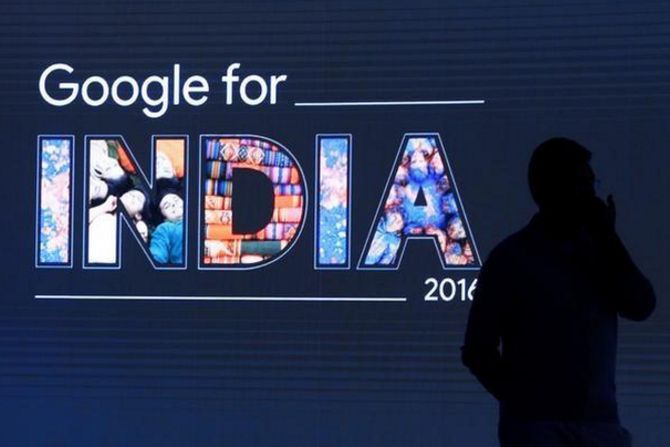'Google has a special responsibility to ensure that it does not distort competition.'
'CCI has asked Google to alter the way it does business in India.'

Five years after a complaint by BharatMatrimony.com, the Competition Commission of India recently imposed a Rs 136-crore fine on Google for abuse of its dominant position in the market.
Naval Satarawala Chopra, below, a partner in law firm Shardul Amarchand Mangaldas, led the team that represented BharatMatrimony.com in its battle against Google in the competition commission.
Chopra shares with Sudipto Dey his perception of the implications of the CCI order on the competitive landscape and the start-up ecosystem among others.
From the competition law perspective, what is the significance of the CCI order?
This is a significant order for many reasons.
First, from a policy perspective, it sets out the way the CCI will approach cases in high technology markets.
The CCI will exercise restraint in intervening in these markets but will take a stand when required.
Second, the CCI has expressed a deep understanding of multi-sided markets and importance of big data and consequently rejected Google’s claim that it is a free service, and therefore, should not be regulated by competition law.
Third, unanimously the CCI finds Google to be dominant in the relevant market.
This implies that Google has a “special responsibility” to ensure that it does not distort competition.
In other words, it is held to a higher standard than its competitors.
Fourth, the CCI has laid down the principle that Google by unduly giving prominent placement and real estate of its product on its search engine result page for directing traffic to its own specialised search service is abusing its dominance.
This has an impact beyond shopping and may be considered for other verticals of Google.
Finally, the fine and the remedy imposed are significant, as the CCI has asked Google to alter the way it does business in India.
What could be its implication for the Indian start-up ecosystem?
The order is a shot-in-the-arm for Indian start-ups.
 Google is an unavoidable trading partner for start-ups and a gateway to the internet for users.
Google is an unavoidable trading partner for start-ups and a gateway to the internet for users.
Placement on Google’s search engine result page can make or break a company.
The CCI order not only requires Google to desist from any form of search bias but informs start-ups that they can question Google’s act of favouring its own products.
Do you expect this order to encourage more companies to raise anti-competition issues against the dominance of a few social media and internet search players?
This order clearly sets out that Google is dominant in the markets for search and search advertising, which will make any further case against it simpler and therefore, may encourage such cases.
However, the order repeatedly affirms the CCI’s view that intervention in high technology markets should be limited.
So, as far as other large players are concerned, complaints may not follow in the same manner.
One critique is that the order is based more on public perception than economic data. Do you agree?
This is not true.
The CCI has relied on a detailed report that was prepared by its investigation arm.
The CCI has carefully examined the evidence and repeatedly called out the report where a finding was, in its view, not backed by evidence.
An interesting point to be observed, however, is that tough economic evidence of search bias is often impossible to find.
This is a fact recognised by the founders of Google, almost 20 years ago, in a paper they wrote while at Stanford University.
The dissent note is contradictory in parts.
It rejects the finding of the majority and suggests that more evidence was required to arrive at such funding.
Instead of ordering the DG (director-general) to collect such additional evidence, a power that the CCI possess even after the DG report is submitted, the minority members found Google not guilty.
It is contradictory because rather than relying on various forms of evidence and theories of harm outlined by the DG and the majority members, they relied on data provided by Google.
How does this order compare to similar such orders against Google?
The order of the CCI is consistent with the European Commission’s order in terms of its finding.
Of course, the fine and the remedy imposed in Europe were more severe.
The reasoning in India follows similar lines as in Europe.
There are other findings against Google, for example in Russia, but India and Europe are more similar in the content of the violation.
Photograph (Google): Adnan Abidi/Reuters.












 © 2025
© 2025